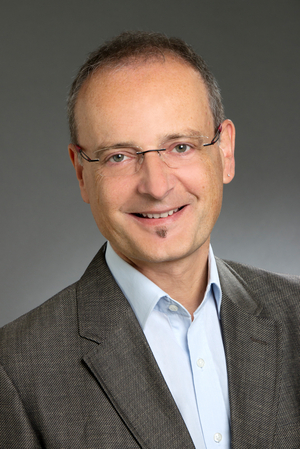"The e-portfolio is dead, long live the e-portfolio! What are the implications for e-portfolio work considering ChatGPT and other AI tools?"

According to Mayrberger (2013), e-portfolios act as a bridge between teaching, learning, and assessment processes. From this point of view, the general expectations for e-portfolio work are high, as it is assumed that e-portfolio work as a pedagogical concept basically supports learners in the (further) development of professional and metacognitive competencies. Baumgartner (2007) points out that learners use their e-portfolios not only to present the current level of acquired competencies, but also to document their own learning history and to show personal development potential. However, e-portfolios would not be limited to their function as a competency-based form of assessment; used innovatively, they could become a catalyst for a new learning culture. ChatGPT and other AI tools are currently fuelling the discussion at colleges and universities about the classic learning and examination culture. Against this backdrop, e-portfolios are increasingly moving into the spotlight as an alternative form of assessment: due to their process orientation, e-portfolios have the potential, according to Redecker (2022), to become the subject of meta-reflection and communication in order to use the means of the digital to put the digital (in this case: AI-based technologies) itself to the test and to explore and further develop its possibilities. What is the innovation potential of AI-based tools for the further development of e-portfolio work? Where are the challenges and opportunities? How does e-portfolio work need to change in order to maintain its function as a bridge between teaching, learning and assessment processes?
Literature
Baumgartner, Peter (2007). Career planner e-portfolio - catalyst for a new learning culture. upgrade - Das Magazin für Wissen und Weiterbildung der Donau-Universität Krems, 20-23.Mayrberger, Kerstin (2013). E-portfolios in higher education - between ideal and reality. In Damian Miller & B. Volk (Eds.), E-portfolio at the interface of study and work (pp. 60-72). Münster: Waxmann.
Redecker, Anke (2022). Creativity under control - the e-portfolio between process and product orientation. Medienimpulse, 60 (2), https://doi.org/10.21243/mi-02-22-06.
Curriculum Vitae
HS-Prof. Dr. Reinhard Bauer, MA, Head of the Institute for Vocational Education at the University of Education Vienna
Work and research focus: Didactic design patterns, e-portfolio, e-education, e-learning, university didactics, foreign language didactics, general didactics, vocational education.
Reinhard Bauer studied Romance languages, German and German as a foreign language at the Karl-Franzens-University Graz. After his studies and a one-year stay as a foreign language assistant at the Escuela Oficial de Idiomas in Bilbao (Spain), he taught at a vocational middle and high school until 2008 and wrote several Spanish teaching and practice books. From 2007 to 2009, he completed the postgraduate master's program in eEducation at Danube University Krems, where he worked as a research assistant in the field of educational technology research at the Department of Interactive Media and Educational Technologies from 2009 to 2011.
Reinhard Bauer has been active in the training and continuing education of educators for around 18 years. From 2004 to 2014, he was a lecturer in Spanish didactics at the Department of Romance Studies at the University of Vienna. From 2012 to 2014 he taught again at a vocational middle and high school and at a new middle school in Lower Austria.
In 2014, he completed his PhD with a thesis on didactic design patterns at the Alpen-Adria-Universität Klagenfurt, and in 2016, he graduated from the Pädagogische Hochschule Freiburg (Germany, Akademie für wissenschaftliche Weiterbildung) as a writing consultant (training specialization: consulting and accompanying writers and writing processes in studies).
Since 2014, he has been teaching and researching at the University of Teacher Education Vienna, where he has held a university professorship (PH1/ph1) in teaching science (focus: didactic design) since 2017 and has headed the Institute for Vocational Education since 2019.
Reinhard Bauer is, among others, a member of the Austrian Society for Research and Development in Education (ÖFEB, sections: Teacher Education and Research and Media Education), the Society for Scholarly Writing (GewissS) and member of the Editorial Board of the GMW book series "Media in Science" published by Waxmann-Verlag.
Work and research interests: Didactic design patterns, e-portfolio, e-education, e-learning, higher education didactics, foreign language didactics, general didactics, vocational education.
Open Researcher and Contributor ID: orcid.org/0000-0003-4552-8864

